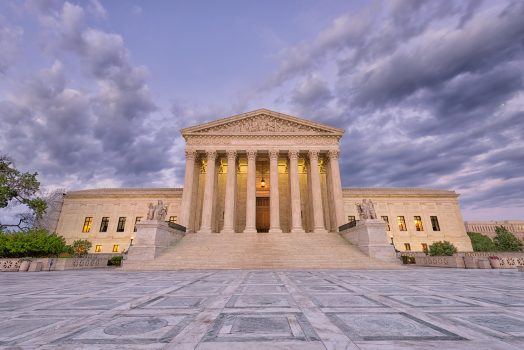
Last Thursday, the U.S. Supreme Court ruled in favor of religiously affiliated organizations that sought an exemption from Wisconsin’s unemployment-tax system. Wisconsin’s law, like many others, exempts churches, as well as church-related organizations operated “primarily for religious purposes.” The unanimous opinion in Catholic Charities v. Wisconsin Labor and Industry Review Commission was fortunately narrow and reaffirmed important Establishment Clause principles, including that the government cannot give preference to one religion over another.
But the ruling also makes it more difficult for courts to determine which organizations are “religious” for the purpose of exemptions – opening the door to a proliferation of exemptions never intended by legislatures.
Americans United filed a friend-of-the-court brief in early March in support of Wisconsin, arguing that courts must be able – and always have been able – to make distinctions between religious and nonreligious organizations in a meaningful way. The court’s decision in Catholic Charities does not dispute that principle. It does, however, make it more difficult to implement.
In many ways, the unanimous decision written by Justice Sonia Sotomayor is a win for church-state separation. The decision ignored the challengers’ argument that religious motivation alone must be sufficient to qualify organizations for statutory exemptions like the one at issue in this case. Instead, the court based its holding on the fact that the Wisconsin Supreme Court relied on certain indicators of “religious purpose” that are not common to all religions – such as proselytization or serving only those who share the organizations’ faith. Doing this, said Sotomayor, impermissibly “grants denominational preferences.”
What’s more, Sotomayor’s Catholic Charities opinion reaffirms long-standing, crucial Establishment Clause principles – particularly the one against denominational preferences – that have recently been threatened. Across the country, legislatures and local public officials have been attempting to place displays of the Ten Commandments in classrooms, build religious statues and infuse public-school curricula with religious instruction. All these actions result in denominational preferences that are unconstitutional under last week’s decision.
At the same time, the decision represents a threat to legitimate governmental action. While the opinion itself was narrow, lower courts could implement it in a way that is far broader. In striking down Wisconsin’s approach to separating religious from nonreligious organizations, the court did not explain what type of approach would be permissible. And that matters. As a result of Catholic Charities, there’s a risk that courts will default to considering only an organization’s claimed religious motivation, not its activities, when evaluating exemptions from similar types of law like antidiscrimination protections, labor laws and tax policies.
This would broaden exemptions well beyond their intended scope and put at risk the millions of people who rely on the laws’ protections. Religiously affiliated organizations serve a wide array of functions. Around 20% of hospitals in the United States are religiously affiliated. Religious schools are often directly affiliated with a house of worship. And religious entities frequently deliver government services like food assistance and housing. Employees in each of these industries are now at risk.
Possibly even more concerning is that there is no guarantee that the holding in Catholic Charities will be confined to laws like the one at issue in the case. Courts frequently must distinguish between religious and non-religious organizations and activities. And many organizations claim religious motivation for their actions. If courts cannot use a set of objective criteria to make distinctions, any number of organizations with leaders that claim their religious beliefs support their mission could try to avoid the laws that should apply to them.
Challenges relying on Catholic Charities are already under way. In Roman Catholic Diocese v. Albany, the Christian Nationalist group Becket Fund is using the decision to argue against a New York law that only narrowly exempts certain “religious employers” from its requirement to provide insurance coverage for medical abortions. In St. Mary’s Catholic Parish v. Roy, Becket is arguing that Colorado’s narrow religious exemption from its antidiscrimination laws must be expanded to a vast range of religion-related entities.
And in Oregon Right to Life v. Stolfi, where a pro-life nonprofit is arguing that its religious motivation exempts it from certain provisions in Oregon’s health-insurance laws, the Ninth Circuit has ordered briefing about whether the opinion in Catholic Charities means that the nonprofit must be considered a religious organization entitled to an exemption. The outcomes of these cases could make many religious exemptions unworkable and dangerous.
So, Catholic Charities is a win for the Establishment Clause, which has lately been under relentless attack by this Supreme Court. But it also opens the door to more fights ahead, which AU is ready to take on.
With thanks to AU Legal Intern Kaleigh Spires for research assistance.